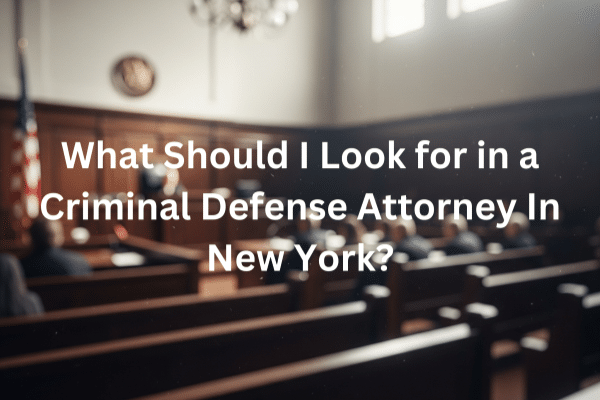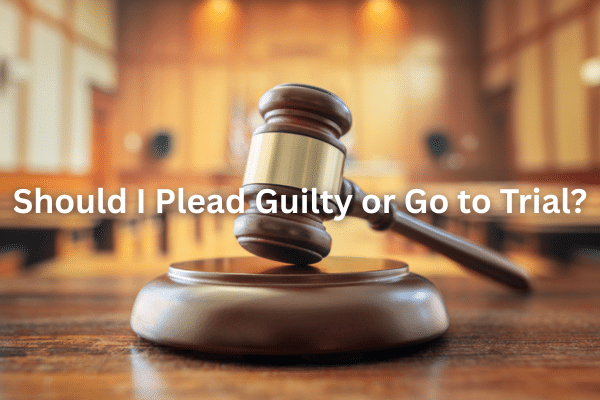

Facing a criminal charge can feel like your entire future is hanging in the balance. The attorney you choose will shape how the facts are investigated, how negotiations unfold, and if necessary, how persuasively your story is told before a judge and jury. Below are the qualities that separate an average lawyer from the ally you really need when the stakes are highest.
New York’s Penal Law and Criminal Procedure Law differ in crucial ways from neighboring states, and Long Island’s two counties—Nassau and Suffolk—each have their own courtroom rhythms, filing deadlines, and judicial preferences. A top-tier defender stays ahead of legislative updates, appellate decisions, and local administrative rules. They also know the nuances of how plea offers are typically structured in local district courts, when particular judges are open to alternative sentencing, and which programs (drug treatment, veteran diversion, youthful offender status) are realistically available in your venue.
Everyone advertises “aggressive” representation, but the real measure is a documented record of reduced charges, dismissals, and acquittals across a range of offenses—DWIs, assaults, larcenies, drug crimes, and white-collar matters. Look for concrete case outcomes and, if possible, client testimonials that verify them. An attorney who routinely converts felony counts into non-criminal violations has demonstrated the negotiation skill and legal creativity you want on your side.
Reputation travels fast in Long Island’s tight-knit legal community. A lawyer who has spent decades earning the respect of assistant district attorneys and court staff can often secure faster discovery, candid plea discussions, or an early indication of how a judge might rule on a sensitive motion. These professional relationships aren’t shortcuts to justice, but they do grease the procedural wheels and can make an enormous difference when time, evidence, or resources are limited.
Legal bills shouldn’t be a mystery. A trustworthy defender explains—up front—how retainers, hourly rates, flat fees, and expert-witness costs work. They give you a written agreement and stick to it. Unexpected motions or additional court appearances happen, but you should never be surprised by an invoice. Clarity on costs allows you to focus on your case instead of your bank account.
Great defense work is rarely solo work. Investigators, forensic toxicologists, accident reconstructionists, mental-health professionals, and electronic-discovery consultants can all play pivotal roles. Your attorney should have access to a reliable team and know exactly when to deploy them. Thorough investigation can uncover body-cam gaps, chain-of-custody errors, or witness biases that upend the prosecution’s narrative.
No two arrests or defendants are identical. A misdemeanor shoplifting charge for a high-school senior demands a different approach than the same charge for a licensed nurse. You deserve counsel who digs into the personal context: prior record, immigration status, career goals, family obligations. By tailoring discovery requests, motion practice, and plea negotiations to the bigger picture of your life, a savvy lawyer protects more than your legal record; they protect your future.
The criminal process is stressful because it often feels opaque. An attorney committed to regular updates—phone calls returned within a business day, emails summarized in plain English, texts when there’s breaking news—allows you to sleep at night. Detailed explanations of next steps and likely timelines turn anxiety into informed collaboration.
If trial becomes unavoidable, technical knowledge must merge with persuasive delivery. Juries respond to authentic confidence, ethical conduct, and the ability to translate legal jargon into relatable human themes. Watch your prospective lawyer in action if possible; many arraignments and preliminary hearings are public. A commanding yet respectful style can resonate with both judge and jury when it matters most.
Choosing a criminal defense attorney is about more than credentials on a website; it’s about finding a trusted guide who understands Long Island’s legal landscape and has the tenacity to champion your side of the story. By insisting on deep local knowledge, proven outcomes, transparent fees, responsive communication, and a personalized approach, you position yourself for the best possible defense.
If you or someone you love is facing a criminal charge anywhere in New York, call Ed Palermo today for a free, confidential consultation and put decades of experience in your corner.
 Life can change in an instant when you’re charged with a crime on Long Island. One moment you’re moving through your daily routine, and the next you’re staring at paperwork that could alter your future. Before panic sets in, remember: you have options, and the choice between accepting a plea or standing trial is one of the most consequential decisions you’ll make. Below, I break down the practical, legal, and personal factors every defendant should weigh so you can approach this crossroads with clarity and confidence.
Life can change in an instant when you’re charged with a crime on Long Island. One moment you’re moving through your daily routine, and the next you’re staring at paperwork that could alter your future. Before panic sets in, remember: you have options, and the choice between accepting a plea or standing trial is one of the most consequential decisions you’ll make. Below, I break down the practical, legal, and personal factors every defendant should weigh so you can approach this crossroads with clarity and confidence.
Everything starts with understanding the precise nature of the allegations against you. New York criminal statutes classify offenses as violations, misdemeanors, or felonies, each carrying vastly different potential penalties. A violation might mean a fine or short jail term; a felony can mean years behind bars and the loss of key civil rights. Knowing the statutory range is essential because it frames both plea discussions and trial strategy. Ask your attorney to translate legal jargon into plain language: What elements must the prosecution prove? Which sentencing guidelines apply? Clarity about the stakes lays the groundwork for an informed decision.
A case is never just about what happened—it’s about what the State can prove. Police reports, body-cam footage, lab results, and eyewitness statements all have vulnerabilities. Perhaps a lineup was improperly conducted or a search warrant lacked probable cause. Effective defense counsel will pressure-test every piece of evidence, looking for constitutional violations or forensic weaknesses. If key evidence is likely to be suppressed, the prosecution’s leverage drops and a trial becomes more attractive. Conversely, airtight proof (such as clear video footage) may tilt the scale toward negotiating the best possible plea.
When you plead guilty, you admit to the court that the State can meet its burden of proof. In exchange, you often receive a negotiated sentence, known as a plea bargain. Once accepted by the judge, a guilty plea creates a criminal conviction on your record that is difficult—sometimes impossible—to expunge in New York. You give up your right to trial, to confront witnesses, and to appeal most issues. While that sounds daunting, a plea can cap your exposure to harsh penalties, provide certainty, and speed up closure so you can focus on rebuilding your life.
A trial preserves your presumption of innocence and forces the State to prove guilt beyond a reasonable doubt. You and your attorney can challenge evidence, cross-examine witnesses, and present alternative narratives. That control can be empowering and, in some cases, the only path to complete vindication. Yet trials are inherently risky. Unforeseen testimony, juror biases, or last-minute evidence can sway outcomes. If convicted, judges often impose stiffer sentences than those offered in plea negotiations. Before opting for trial, weigh not only your likelihood of success but also the worst-case scenario if things go sideways.
A conviction’s impact extends beyond fines and jail. Professional licenses, immigration status, student aid eligibility, and even housing applications can all be affected. Sometimes a single misdemeanor renders you ineligible for certain jobs or graduate programs. Your attorney should map out these ripple effects so you understand how each option shapes future opportunities. Remember: an acquittal wipes the slate clean, but a guilty plea even to a reduced charge might still trigger lingering civil or administrative penalties.
Trials demand extensive attorney hours, private investigators, expert analyses, and time off work for court dates, which can strain finances. Family members may also shoulder emotional burdens, especially when proceedings drag on. Plea deals aren’t free either, but they typically involve fewer billable hours and a shorter timeline. Run a realistic budget with your lawyer and being candid about resources allows them to craft a defense plan that aligns with your means.
Television often portrays dramatic “gotcha” moments that flip a case on its head at the eleventh hour. In reality, successful defenses usually hinge on meticulous pretrial motions, expert testimony, and strategic negotiations, not last-second surprises. Likewise, many defendants fear that juries always side with police. Empirical studies show that juries are persuadable when defense counsel clearly exposes reasonable doubt. The bottom line: don’t base your decision on Hollywood scripts or street lore; lean on evidence, precedent, and professional analysis.
The attorney-client relationship is a partnership. Bring every concern to the table no matter how small it may seem. Share details about witnesses, timelines, and any mental health or substance-use issues that might become mitigating factors. A good defense lawyer will provide a candid assessment of strengths and weaknesses, outline likely plea offers versus trial outcomes, and respect that the final choice is yours. The best results often come when clients are proactive, organized, and transparent from day one.
If you’re wrestling with the question of whether to plead guilty or take your case to trial, you don’t have to navigate this alone. I’m Ed Palermo, and for more than 30 years I’ve helped Long Islanders face criminal charges with confidence whether that means securing a favorable plea or fighting relentlessly in court. Reach out for a free, confidential consultation, and let’s chart the strategy that protects your freedom and your future.

Flashing lights in the rear-view mirror, a knock at your door, a letter summoning you to court—however it begins, a criminal charge can flip your life upside down. In that moment, choosing the right lawyer isn’t a box to check off; it’s the difference between sleepless nights and a clear path forward.
Below are the qualities that separate an average “lawyer on retainer” from a genuine advocate—especially here on Long Island, where local knowledge and relationships can matter as much as raw legal skill.
Longevity alone doesn’t guarantee success, but courtroom wins and favorable negotiations do. Look for:
Attorney Ed Palermo, for example, has secured reductions from DWIs to traffic infractions for professionals whose careers were on the line, and has been doing so for over thirty years. This outcome speaks louder than any ad copy ever could.
General practitioners might handle contracts in the morning and arrangements in the afternoon. A dedicated criminal defense attorney stays immersed in:
Specialization translates to sharper instincts—like spotting a procedural defect in an arraignment that others would miss.
On Long Island, each courthouse has its rhythm. Judges, assistant district attorneys, and even clerks recognize attorneys who appear before them regularly. Positive professional rapport can:
Ask the attorney how often they appear in Suffolk and Nassau County courts and how those relationships have benefited past clients.
Awards aren’t everything, yet consistent peer-review honors hint at both competence and integrity. Being voted Best Lawyer on Long Island five years running, as Ed Palermo has, reflects respect from clients and colleagues alike—people who see the work up close.
Stress multiplies when costs are murky. A trustworthy lawyer will:
Clarity on money matters builds trust long before the first court date.
Your attorney should return calls promptly, translate legal jargon into everyday English, and prepare you for every hearing. Warning signs include:
Great communication isn’t courtesy—it’s a critical strategy. A client who understands the stakes can help gather evidence, line up witnesses, and avoid missteps like social media oversharing.
Complex cases often hinge on expert testimony, digital forensics analysis, or private-investigator fieldwork. Ask:
A solo act may shine in open court but falter behind the scenes without administrative and investigative backup.
Many criminal cases settle before trial, but the prospect of trial shapes every negotiation. Prosecutors evaluate:
Watch the attorney in action if you can—early morning arraignments are typically open to the public. Confidence coupled with civility sways judges and juries alike.
Legal prowess means little if you can’t speak candidly with your lawyer. During the consultation, gauge:
A lawyer who treats you like a person, not a paycheck, will fight harder because your outcome matters on a human level.
Ask prospective attorneys to outline:
Vague assurances (“We’ll take it as it comes”) suggest reactive lawyering. You deserve a proactive strategy.
Choosing a criminal defense attorney on Long Island is less about glossy brochures and more about tangible indicators: successful past results, courtroom savvy, transparent fees, and authentic concern for your future. Interview multiple lawyers, scrutinize their case histories, and trust your gut—because the partnership you form today may shape your life for years.
If you’re weighing your options and want straight answers from someone who’s been defending Long Islanders for over thirty years, call Ed Palermo. The consultation is free, the conversation is frank, and the strategy is tailored to your unique situation. Don’t wait, let experience and dedication work for you starting now.

A loud knock at the door, the flash of red and blue lights, the click of handcuffs—moments like these can flip a life upside-down in an instant. The hours and days that follow are often a blur of court appearances, paperwork, and sleepless worry. In that haze, one question rises to the surface again and again: Is there any way to make this go away? As a criminal defense attorney who has spent more than thirty years inside New York courtrooms, I can tell you that the answer is sometimes yes, but it depends on a mix of legal nuance, diligent investigation, and strategic timing.
A dismissal is the legal equivalent of hitting the reset button. The charges vanish, you regain your standing in the eyes of the court, and outside of rare exceptions, the arrest can usually be sealed so it doesn’t haunt background checks. Unlike an acquittal at trial, which declares you not guilty, a dismissal stops the prosecution before the case ever reaches that point. For many clients, that outcome feels like a lifeline.
A dismissal can happen at several stages: during arraignment, after key motions, or even on the morning a jury trial is set to begin. Knowing where the opportunities lie is half the battle.
From the moment I’m retained, my team and I dig into police reports, 911 recordings, body-cam footage, and any digital trail that might contradict the state’s story. Facts uncovered within those first few weeks frequently form the backbone of later dismissal motions.
Even when dismissal isn’t guaranteed, demonstrating the prosecution’s vulnerabilities can encourage a favorable plea or persuade prosecutors to exercise their discretion to dismiss in the interest of justice.
While experience and hard work play huge roles, some elements sit outside any attorney’s reach:
Clients often ask, “How long before we know if the charges will be dismissed?” The candid answer is that it varies:
| Stage of the Case | Typical Timeline | Dismissal Opportunities |
|---|---|---|
| Arraignment to pre-trial (0–90 days) | Early omnibus motions, the speedy-trial clock starts ticking | Procedural defects, insufficient accusatory instrument |
| Pre-hearing (3–9 months) | Discovery battles, suppression hearings | Constitutional violations, insufficient evidence |
| Pre-trial to trial readiness (9–18 months) | Final plea talks, CPL § 30.30 deadline approaches | Speedy-trial dismissal, interest-of-justice motions |
Patience and perseverance are essential. Some of my most satisfying dismissals have arrived minutes before jury selection, after months of dogged litigation.
These aren’t outliers; they illustrate how meticulous investigation and motion practice translate into real freedom for real people.
Dismissals rarely fall from the sky—they’re earned through relentless preparation, nuanced legal arguments, and relationships built over decades inside the courthouse. When you sit down with a prospective lawyer, ask:
Clear, confident answers reveal whether that attorney knows how to turn legal theory into tangible results.
Facing criminal charges feels like standing on the edge of a cliff, but it doesn’t have to end in a fall. Under the right circumstances—defects in paperwork, constitutional violations, weak evidence, or simple prosecutorial overreach—a determined defense lawyer can persuade the court to dismiss. Though no attorney can promise an outcome, the odds rise dramatically when your advocate understands both the letter and the rhythm of New York criminal procedure.
I’m Ed Palermo, and for more than three decades, I’ve challenged the prosecution at every turn to protect my clients’ freedom and reputations. If you or a loved one is staring down criminal charges on Long Island, reach out today for a free consultation and let’s explore every avenue to get your case thrown out.
 Waiting Is the Hardest Part
Waiting Is the Hardest PartFew moments are more stressful than the hours after an arrest. Phones buzz with calls to family, anxiety spikes, and urgent questions flood your mind. Chief among them: When will this be over? While every criminal matter moves at its own pace, understanding the typical milestones in Suffolk and Nassau County courts can ease uncertainty and help you make informed decisions.
The clock starts the moment you’re taken into custody. In Long Island, most defendants are arraigned within 24 hours of arrest. At arraignment, a judge formally reads the charges, sets bail conditions, and schedules the next appearance. Although this step feels preliminary, it sets the tone for everything that follows. Quick access to counsel during this window can influence bail, secure treatment alternatives, and preserve vital evidence.
After arraignment comes a brief lull while the prosecution evaluates its file. In misdemeanors, prosecutors often make their first plea offer within a month. Felony matters take longer—grand-jury presentations alone can stretch several weeks. During this phase, your defense team requests discovery, interviews witnesses, and begins building defenses before positions harden.
New York’s 2020 discovery reform now requires prosecutors to turn over extensive evidence within strict deadlines. In practice, that transfer can still take weeks as law enforcement labs finalize reports. Meanwhile, your attorney may hire investigators, subpoena surveillance footage, or consult forensic experts. Complex cases with voluminous phone records or DNA evidence tend to sit at the upper end of this range.
Once discovery is complete, both sides file motions. Common requests include suppressing illegally obtained evidence or dismissing unsubstantiated counts. Long Island judges frequently schedule evidentiary hearings—“Mapp,” “Huntley,” or “Wade” hearings, to name a few—to decide these issues. Court calendars are crowded, so securing consecutive hearing dates can add months, especially during summer and holiday recesses.
Negotiations ebb and flow at every stage, but they intensify after motion rulings clarify the strengths and weaknesses of each side. A favorable suppression decision can push prosecutors toward a reduced charge; an adverse ruling may motivate you to consider a resolution that avoids harsher exposure at trial. Some cases settle on the courthouse steps moments before jury selection begins.
If no agreement is reached, the court issues a trial order. Felony dockets in Riverhead and Mineola often stack multiple trials ahead of yours, forcing adjournments. Additionally, prosecutors and defense attorneys must synchronize expert schedules, subpoena far-flung witnesses, and finalize exhibits. More serious charges—think assault with serious injury or complex fraud—require extensive preparation, stretching timelines toward the 18-month mark.
Jury selection for a misdemeanor DWI might wrap in a day, followed by two days of testimony. A felony trial with multiple counts, medical experts, or extensive digital evidence can span several weeks. Court typically sits four days a week, so a “two-week” estimate might translate to three full calendar weeks.
Even after a verdict or plea, there’s more waiting. Probation conducts a pre-sentence investigation, the defense prepares mitigation materials, and the prosecution submits impact statements. Courts usually set sentencing 4 – 12 weeks out. In higher-level felonies, written motions for a reduced sentence or to set aside the verdict can extend this stage.
Should you challenge the outcome, appellate deadlines arrive fast—often within 30 days of sentencing—yet the appeals themselves move slowly. Gathering transcripts, filing briefs, and scheduling oral argument in the Appellate Term or Appellate Division easily adds 12 – 24 months. If the conviction stands, post-conviction petitions and federal habeas corpus can stretch the process even further.
| Factor | Timeline Impact | Practical Tip |
|---|---|---|
| Charge Severity | Felonies outlast misdemeanors. | Early case evaluation may secure charge reductions. |
| Court Caseload | Riverhead dockets differ from Central Islip. | Choose counsel who regularly appears in your courthouse. |
| Discovery Volume | Digital forensics can add months. | Retain experts without delay. |
| Witness Availability | Out-of-state or reluctant witnesses stall progress. | Prompt subpoenas ensure cooperation. |
| Judicial Continuances | Sick jurors, vacations, or judicial reassignments interrupt. | Flexibility and preparation mitigate last-minute changes. |
Local knowledge isn’t just convenient—it’s crucial. A criminal defense lawyer who regularly appears before the same judges understands their motion preferences, sentencing philosophies, and courtroom idiosyncrasies. Familiarity with the district attorney’s policies in Suffolk versus Nassau County can reveal early-resolution opportunities others miss. Seasoned counsel also anticipates roadblocks, such as overbooked forensic labs or administrative adjournments, and adjusts strategy to keep your matter from languishing.
No two criminal cases travel identical paths, yet most follow the framework above. From the first frantic phone call to the final gavel, the journey can be measured in months for minor offenses and several years for serious felonies. Knowledge of each phase arms you with realistic expectations and the confidence to make sound choices.
If uncertainty about timing keeps you up at night, let’s talk. I’m Ed Palermo, and for more than three decades, I’ve guided Long Island clients through every step of the criminal process—reducing delays, negotiating favorable outcomes, and fighting tirelessly when trial is the best option. Call Ed Palermo for a free, confidential consultation today.